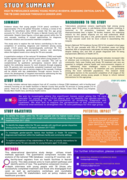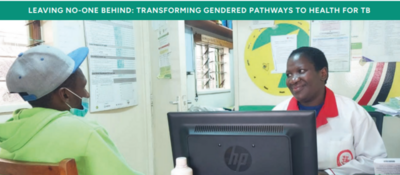
Research in Kenya
Research in Kenya
The research carried out by LIGHT partners at ReSoK aims to understand the burden of tuberculosis among young people (15-24 yaers), especially young men, to enable the development and testing of tailored interventions to address this burden.
To achieve this, the LIGHT research team in Kenya will carry out the following activities:
- TB care cascade analysis to determine risk factors for non-completion of screening, diagnostic and treatment steps among young people in Kenya, allowing for prioritisation of resources and optimisation of TB care among young people aged 15-24 years.
- Qualitative research study comprising in-depth interviews with young people with TB (those who successfully completed treatment and those who disengaged from care at different stages of the cascade) to explore their views on TB care related challenges, opportunities, expreineces and suggeted solutions.
- Participatory approach to co-design tailored interventions for young people- including participatory workshops and roundtable discussions with TB stakeholders such as policy makers and healthcare providers and young people.
This research is led primarily by by LIGHT's Early Career Researcher, Ms Rhoda Pola.
For more information about this research, read the one page project summary.
The research team in Kenya is also conducting "Participatory Action Research" in partner countries actively engages communities affected by TB – including people with lived experiences, their care givers or family members, and healthcare workers – in collection, analysis, dissemination, and dialogue with decision makers. This approach is instrumental in co-creating solutions, shaping and informing person-centred, gender-responsive approaches to TB prevention and care through community participation. In Kenya, the participatory research study focused on “Person-centred, rights based, gender-responsive TB care”, involoving 29 healthcare workers in a series of interactive workshops. Using interactive tools, such as ‘spider diagrams’, participants shared their experiences and discussed perceived opportunities, challenges and needs towards implementing TB services that cater for the rights and diverse needs of different genders and social groups. Reflections and insights were then shared with 24 national TB stakeholders, instigating discussions on key recommendations and plans for action, including informing strategies to improve person-centred TB care in Kenya. Click on this video to learn more about this participatory study in Kenya.


